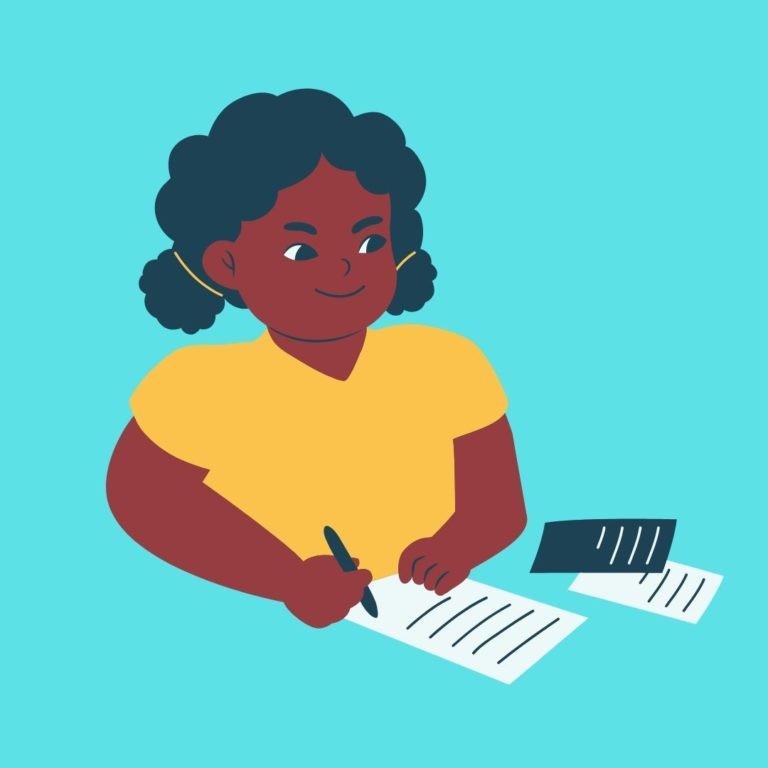by Lauren Brown
One of the most frequently asked questions we’ve received from students during our free virtual creative writing workshops has been: how can I get better at creative writing? It’s a great question, and in itself reveals–at least in part–the answer.
What do I mean? Well, the most important thing a writer needs is that passion and drive to try new things, and if you’re asking yourself how you can improve and are reading this for a kickstart, then you’re well on your way!
Most writers suffer from writer’s block at some point or another, no matter how experienced they are, and feel like they want to go further but don’t know how. If you’re feeling in a rut and need a bit of inspiration before embarking on a new piece of writing, or don’t even know where to start, don’t worry. We’ve compiled a list of five top tips to becoming the writer you know you can be.
Be curious
At the end of the day, nobody is going to tell you to write creatively. It’s something you do because you want to, and that’s the beauty of it. There are no rules and what you create is entirely your own. The flip side of that freedom however is feeling overwhelmed by the blank page and worried what to write about, so getting your imagination going can be really tricky! But remember: you’re in charge. So don’t put too much pressure on yourself, take a step back, breathe, and follow what interests you.
By pursuing what you are interested in, nobody else, you’ll end up down rabbit holes and down paths you might never otherwise have explored. Trust yourself and try to have fun, because that’s what it’s all about! Be curious. Ask questions. Give yourself the time and space to explore. And then, if you feel like it, write.
Practice makes perfect
It’s rare that a first draft of any piece of creative writing comes out perfect. Even your very favourite books or poems will have gone through several drafts and series’ of edits, and that’s absolutely normal! So if you write something you read back and don’t like, remember that that even happens to famous, celebrated authors from time to time. What marks them out is that they keep going. The magic often happens during rewrites and the editing process, so take your time and don’t give up if your first attempt isn’t what you imagined. It doesn’t mean you’re not a writer or that your idea is bad. In fact, it’s probably a sign you are a creative writer!
Try different styles
If you’re stuck on your short story, for example, and for the life of you don’t know where to go next, put it to one side and try something completely different. Usually write in prose? Try writing a haiku instead. Poetry? Try a short story! Instead of writing in the third person (eg. Lucy turned to her teacher and smiled) try the first person (eg. I turned to my teacher and smiled), or write from the perspective of a different character. Why not sketch your landscape, or your main character? Shake off the cobwebs by going outside of your comfort zone, so when you go back to the piece of writing you’re working hard on you feel refreshed and ready to go.
Read, read, read
Oftentimes the best writers are also the best readers. And by best readers I do not mean those who have picked up a copy of War and Peace and read it front to back in a day, or who can read out perfectly in front of the class without stumbling. The best readers are those who read what they enjoy, follow what interests them and reads widely; again, those that are curious. Reading widely doesn’t have to mean forcing yourself to read books you just don’t want to read; it’s not about making it feel like homework, it’s about enjoying yourself. If a topic interests you, whether it’s human anatomy or vampires or the French Revolution or field mice, explore it. Find out more.
Read your work aloud
This might feel a little silly to try at first, but getting a sense of how your work sounds will give you an indication of how it reads. At the end of the day, writing is just speaking on paper, and finding your unique voice and way of telling is the best goal any creative writer can have. It’s also a great way to identify which parts are niggling at you, or feel unfinished, or you want to change.

